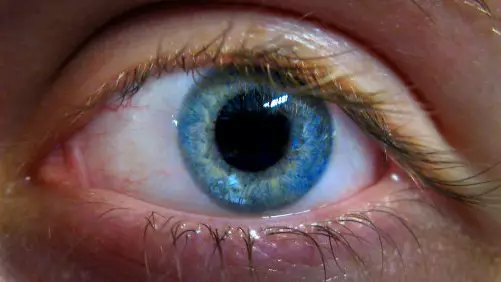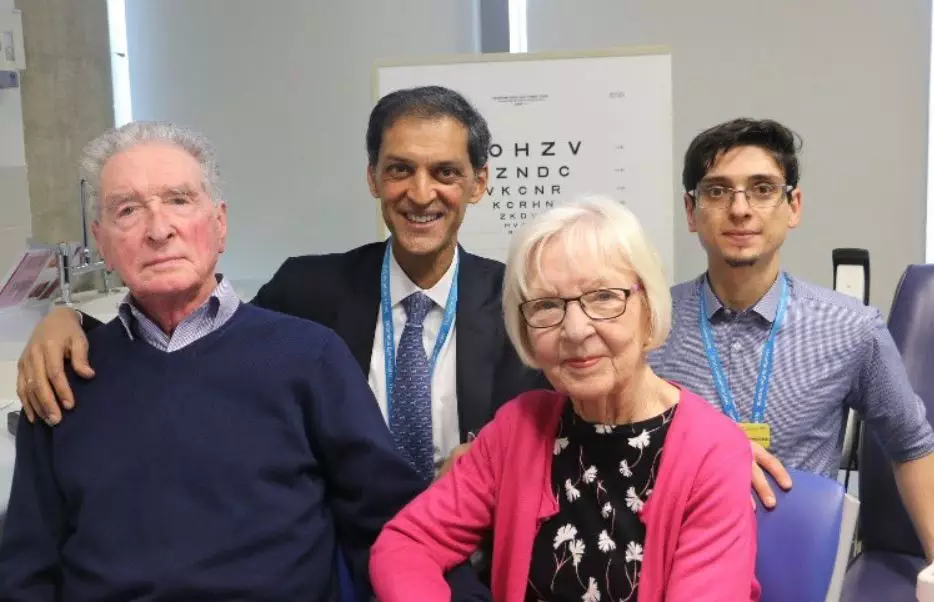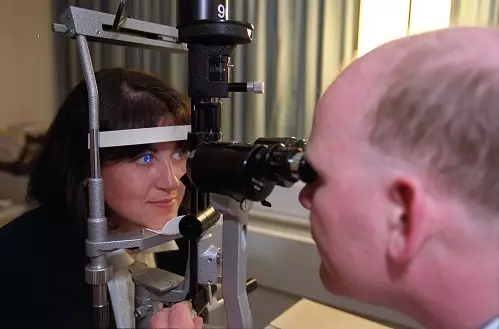
Doctors have successfully reversed symptoms of the most common forms of blindness in the UK, leading them to think that a cure may one day be possible. Pretty amazing, eh?
Two patients with age-related macular degeneration - the leading cause of blindness in the UK and the third largest globally - now have improved vision after undergoing pioneering stem cell therapy at Moorfields Eye Hospital in London.
The surgery used cells from a human embryo which were grown into a patch and carefully inserted into the back of one of the patients' diseased eyes.

Douglas Waters, an 86-year-old from London, developed severe age-related macular degeneration in his right eye three years ago, leaving him unable to read using the eye at all.
Advert
However, since the operation he has now been able to use the eye to read a newspaper, to the speed of between 60 and 80 words a minute.
Douglas told the BBC: "In the months before the operation my sight was really poor and I couldn't see anything out of my right eye.
"It's brilliant what the team have done and I feel so lucky to have been given my sight back."
The macula - the part of the eye that allows you to see straight ahead - is made up of rods and cones supported by a layer of cells called the retinal pigment epithelium (RPE), which causes blindness if it starts to fail.
Advert
Now using a new technique, doctors have managed to create a new RPE using stem cells and implant it in a patch in an operation which takes up to two hours.
Prof Lyndon da Cruz, consultant retinal surgeon at Moorfields, told the BBC: "We've restored vision where there was none.
"It's incredibly exciting. As you get older, parts of you stop working and for the first time we've been able to take a cell and make it into a specific part of the eye that's failing and put it back in the eye and get vision back."

It's important to note that the doctors haven't cured macular degeneration yet as they haven't yet managed to completely restore the patients' vision.
Advert
However, both Douglas and his fellow patient have had improved vision in their treated eyes for over a year, with eight more patients set to undergo the treatment.
Doctors are now conducting further studies to make sure the treatment stays effective over time and remains safe to patients - both of which look good so far.
Dr Carmel Toomes, from Leeds Institutes of Molecular Medicine, said: "To see an improvement is a good sign that this therapy may help patients in the future, although further studies are needed before real conclusions can be drawn."
Experts hope that the treatment will lead to an an affordable 'off-the-shelf' therapy that can be made available to NHS patients by 2023.
Featured Image Credit: PA